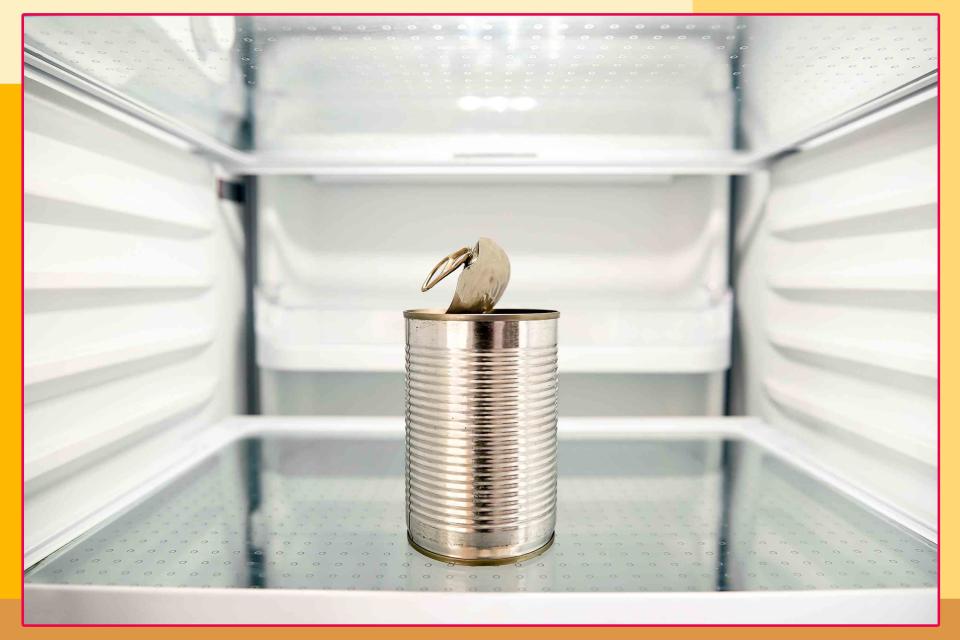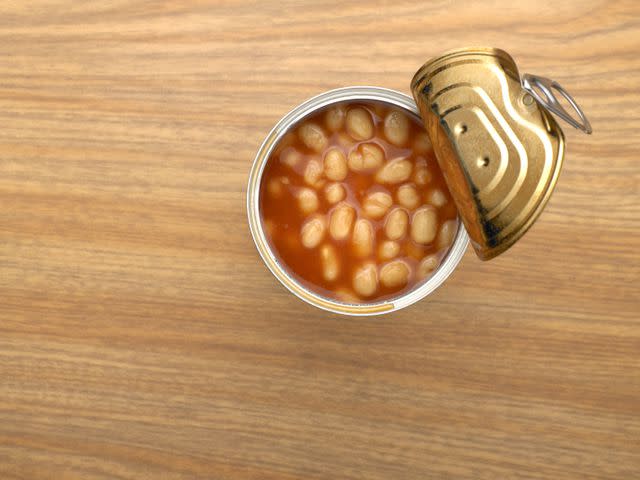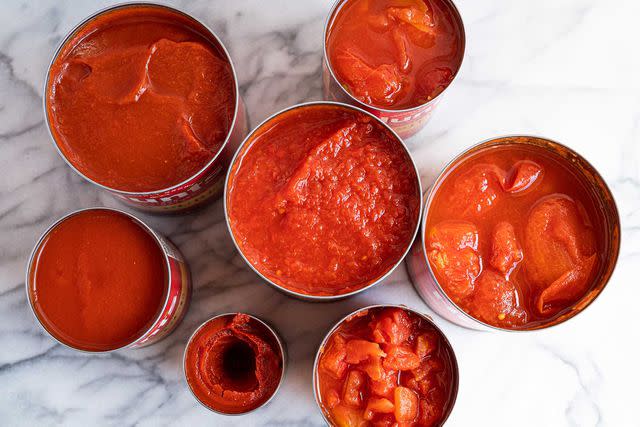Is It Safe To Store Food In An Open Can? Here’s What the Food Safety Experts Say
It's not just about your safety. Your tastebuds can tell the difference too.

I’ve done it so many times. I use just a bit of tomato paste or half a can of beans. I throw on some foil and put the can of leftovers in the fridge. When I unearth it days later, it often smells and looks funny. I wonder, Will it taste okay? Is it safe to eat?
Whether it’s canned veggies, beans, or tomato paste, is it OK to leave leftovers in the original can until you’re ready to use them again?

Simply Recipes / Getty Images
What the Experts Say About Storing Food in Its Can
It’s fine but not ideal to store unused leftovers of canned food in the refrigerator, says the United States Department of Agriculture (USDA). Leftovers can be stored in the can for about one to five days, depending on the type, according to Purdue University Extension. Canned fish or seafood lasts only two days, while fruit lasts two to four days, and tomato sauce for five days. However, for the best quality and flavor, put the leftovers in a lidded food-grade glass or plastic container.
“Personally, I always transfer leftover canned foods to an airtight glass container in the refrigerator or freezer for storage to better preserve the flavor and texture of the food,” says Kelsey Kunik, Registered Dietitian Nutritionist, an advisor for nutrition review website Fin vs Fin. “Storing leftover foods in the can may affect the taste and quality of the food as air interacts with the can and the food. Transferring leftovers to a glass container with a lid is preferable to reduce exposure to oxygen and limit changes in taste and quality.”
Cover the Can Tightly
If you decide to put a half-full can in the fridge, it's important that you cover it well. Never leave the opened uncovered can sitting there on the shelf to absorb smells from other foods. Or worse, have something fall inside.
“Plastic wrap or plastic covers are likely your best bet for covering your food airtight,” says Kristen Smith, MS, RD, LD, a registered dietitian at Piedmont Healthcare in Georgia and spokesperson for the Academy of Nutrition and Dietetics. “Never try to top the can with the original aluminum can top. It can easily cut your fingers and usually doesn't create an airtight seal.”
Smith says it’s a good idea to remove the top completely so you can have a better seal to keep air out of the can when you cover it with plastic wrap.

Acidic Foods Fare Worse In Cans
Some foods survive staying in the original can better than others. “Non-acidic foods like canned beans, spinach, or tuna generally keep better in the can than acidic foods like tomatoes as the acidity can leach a metallic taste into the food pretty quickly,” says Kunik.
For tomatoes or tomato-based foods, preserve taste and quality by immediately transferring leftovers into a glass container with a snug-fitting lid.
Read More:7 Types of Canned Tomatoes and How to Use Them
Concerns About BPA In Cans—What You Should Know
Canned foods have been in the spotlight because many cans used to have liners made of a coating with bisphenol A, or BPA. The chemical is found in many plastics and has been potentially linked to medical issues including high blood pressure and heart disease.
However, whether the cans are sitting on your pantry shelf or are half opened in the fridge, the United States Food and Drug Administration (FDA) has said the BPA used in food containers and packaging remains safe because exposure levels are so low. The analysis is based on hundreds of studies after consumer interest and worries about BPA.
Today, about 98% of food cans in the United States are made without BPA linings, reports the Can Manufacturers Institute. A good way to tell if a product has BPA is to look for a code stamped with the number “7,” usually on the bottom of the can. Those are the cans you may want to avoid.

